Know thyself
The politics on religion only fosters a culture of insecurity and creates an environment of fear
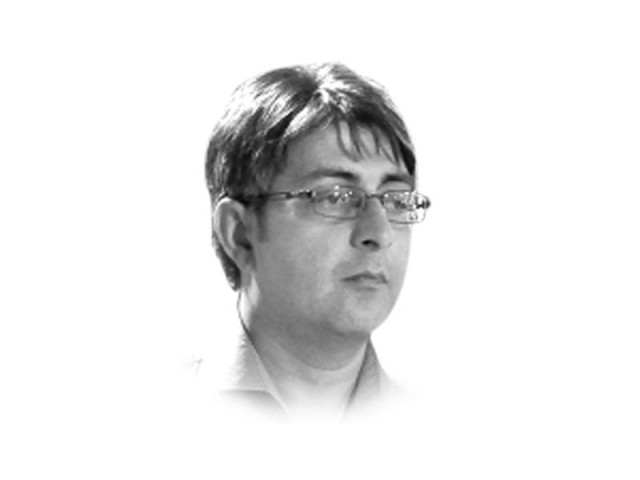
For the third time in two years the short-form video sharing portal, TikTok, finds itself banned in Pakistan. The ban came as a result of a case that is being heard in the Sindh High Court. The next hearing is on July 8, and I have no intention of discussing a sub-judice matter in this space. But this provides me with a segue into a bigger, broader debate on culture, technology, the relationship of the citizen and the state with them, our perceived moral code, the inflexible positions we take and our future generations. We procrastinate sheepishly when this debate is imminent for the sheer want of courage and I believe deferring it will result in the next grand radicalisation of the society. I write these lines not as a journalist or an analyst but as a father, a citizen and a member of the mainstream religious community.
Before we start here is another caveat for you. The infusion of politics in religion has convinced many in this society that there is more than one team and the other team is an enemy. This has led to unnecessary culture wars and the shaping and reshaping of public sensibilities. If you are a religious political party with a declining vote share like the Jamaat-e-Islami, the JUI-F or many others it is useful to otherise all interpretational differences and declare the othered community as the enemy. It has nothing to do with the religion and much to do with politics. In the four decades of my consciousness, I have travelled far and wide in this society and found sentiments on major religious issues to be the same. There is no conspiracy against the main religion and Islam is definitely not under threat in a country of 96% Muslim population.
The politics on religion only fosters a culture of insecurity and creates an environment of fear which makes the job of societal evolution nearly impossible. Look around. There is no grand secret plan to socially engineer this country, transform it into something alien. The cluelessness of the moderate and liberal political parties, when they come to power, is a dead giveaway. And since with every passing day our religious outlook is being shaped by religious politicians or political ambition among the dominant clerical class, we are doing incredible injustice to the free spirit of Islam which as a system of evolving jurisprudence had so openly embraced change and transformation through the institution of ijtihad. As someone who has read many tafasir (Quranic commentaries) and the Sihah Sittah (the authentic six of hadith) along with countless other original texts cover to cover, unprompted at an early age, I can tell you that you are being misled by a misinterpretation of faith by a politically charged community. Of course, the journey did not end there and since then I have read foundational texts of almost all major religions, works of some leading atheists, agnostics and self-proclaimed heretics. Reading always comes handy and if someone wants you to be so emotionally charged all the time that you stay away from your own faith’s main texts, they obviously do not have the interest of your faith at heart.
In The Reconstruction of Religious Thought in Islam, Iqbal identifies three sources of knowledge that the Quran promotes: the divine inspiration (wahi), history (examples of many past civilisations) and science (references to the celestial bodies, flora and fauna and nature). One of the most fascinating insights Iqbal derives is from the instance of the bee which carries in its nature the blueprint to grow and behave in accordance with a pre-programmed pattern which the Quran calls wahi. Decades later, Steve Jobs would have a similar epiphany when he witnessed the birth of a calf and was seized by wonder when he noticed how the newly born calf found his legs and source of food without any guidance. When you look at this remarkable scope of your faith and the range of politically charged religious elite available in the society you get the distinct feeling of someone trying to solve complex calculus equations with an outdated and underpowered calculator if not abacus.
Perhaps the clerics do not want you to know your faith in depth because then they would be the first to lose power. How so? Well, there is no concept of priests in Islam. In Christianity and many other faiths when you commit a sin you go to the priest, confess and get the directions for penance. In Islam, there is only one stop solution, a direct window to God. Unfurl your prayer mat, repent before Him and seek guidance. That’s it. Originally the prayer leaders were supposed to be the community leaders with good repute, not a permanent religious class. So, you get the simple economy of obstruction at play in our society.
Why is this important? Because of the times we live in. Technology is redefining the contours of society. Social media, the internet and globalising economy have made the world consciousness an indivisible whole. Anyone who tells you that this trend can be reversed is lying to you. Many give you the example of the great internet wall of China. They neither understand technology nor the shape of things to come. And that’s not all. With an ever-growing population, technology has already usurped many traditional roles. Parenting is one of them. Wrap your head around the emotional consequences of that statement.
The state has many responsibilities. But its first responsibility along with self-preservation is to stamp out poverty, ensure that the citizens stay safe, sheltered, healthy and always have an opportunity to excel. Don’t get me started on how badly broken this society still is. If you want to talk about the decaying edifices of shame, honour and family values we will need to have another long conversation. But given that states have limited resources they cannot be asked to squander them on moral policing. Islam says that God is the ultimate judge of everyone’s character. Who are we to interfere then?
Whenever Islam rose as a cultural force, in say Cordoba, Baghdad, Constantinople, Cairo, Delhi, elsewhere, it did so by embracing pluralism and creating a safe space for every citizen regardless of their individual choices. If Pakistan wants to grow, it will have to do the same.
Consider the first of the three Delphic maxims: know thyself. The other two are also worth mentioning. Nothing to excess. And surety brings ruin. Together these three have served humanity well for millennia.
Published in The Express Tribune, July 3rd, 2021.
Like Opinion & Editorial on Facebook, follow @ETOpEd on Twitter to receive all updates on all our daily pieces.






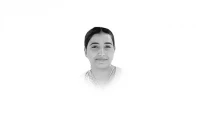


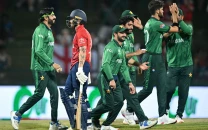

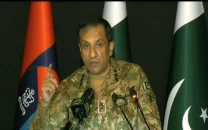
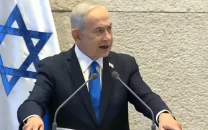


COMMENTS
Comments are moderated and generally will be posted if they are on-topic and not abusive.
For more information, please see our Comments FAQ